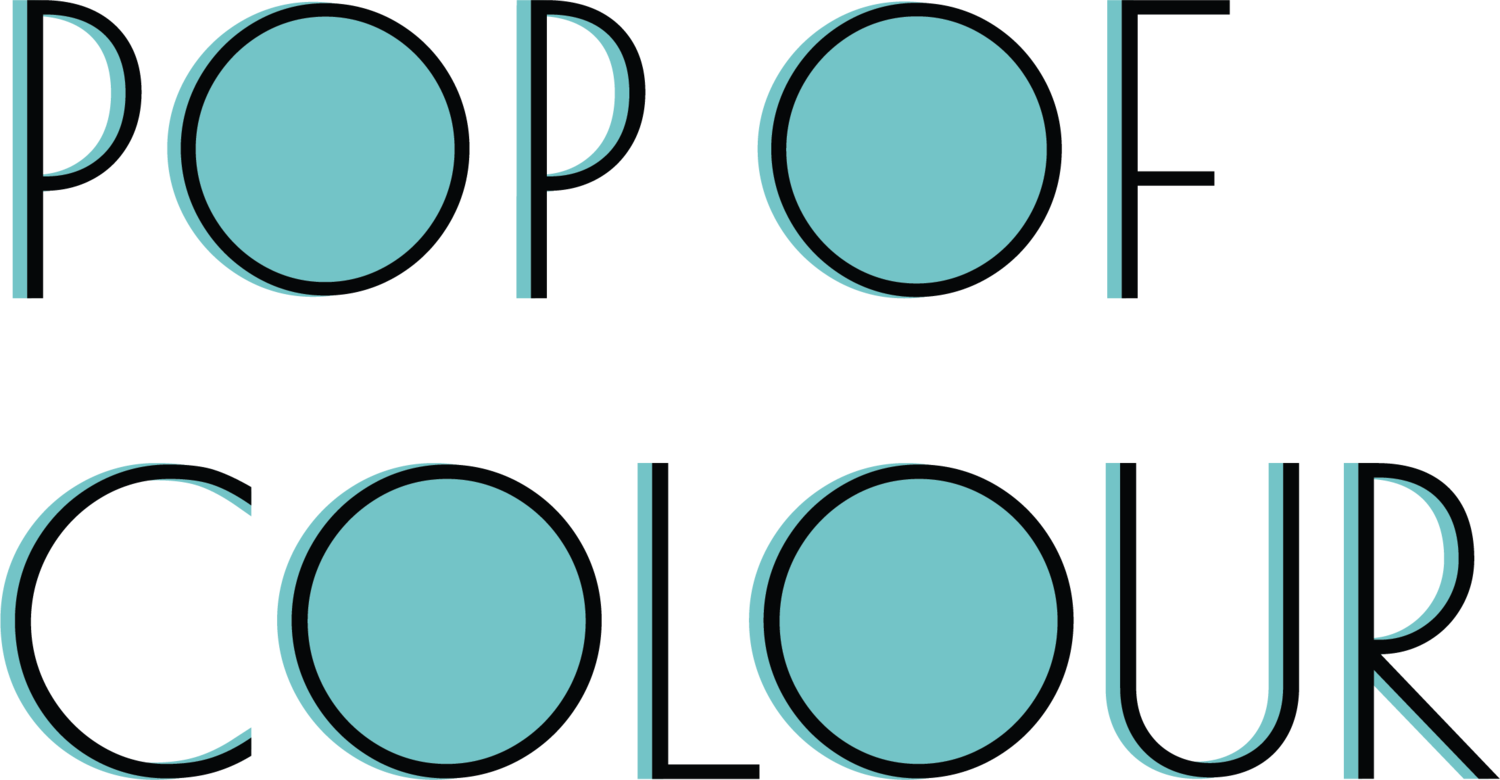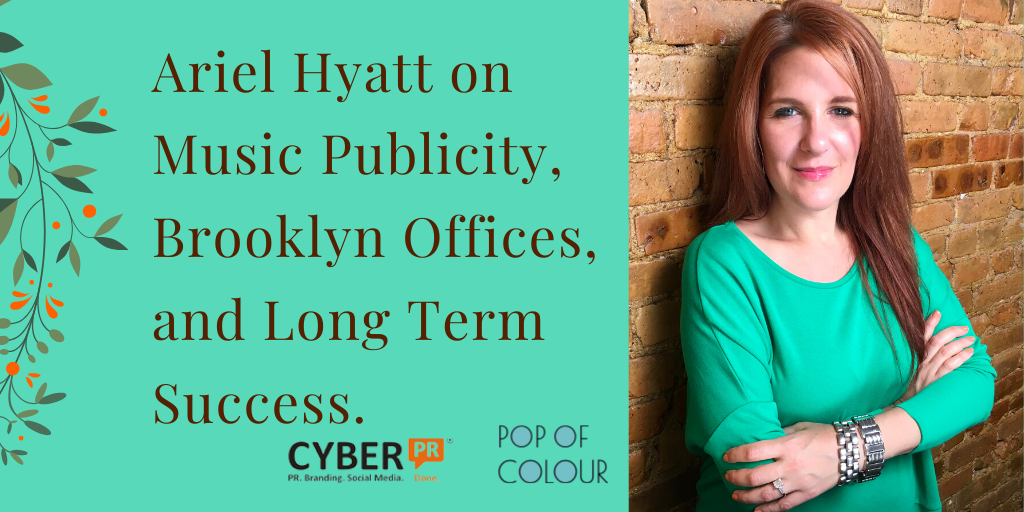Ariel Hyatt on Music Publicity, Brooklyn Offices, and Long Term Success
What does an every day at Cyber PR look like?
No two days ever look the same. I think that is how I have managed to stay interested in my business for all of these years. The thing about the ever changing “new” music business is the one thing I have learned is you must be passionate about becoming a student of all of the changing trends and developments while at the same time I need to always bear in mind that my clients are artists and not marketers first. So introducing most of my artists to bleeding cutting edge technologies and ideas can feel overwhelming for them. That being said my time is divided between writing Total Tuneups (our long term marketing plans) and strategies for artists, managing my team who handle PR and Social Media Management, making sure our reporting and accountability is in place so our artists are well communicated to and touching base with our current roster consistently. I also spend time talking to new interested clients and of course there is the blogging, newsletter, podcast, and social media side of the house that keeps our business interesting and inspiring to the industry and artists who may want to work with us
You rent an office in Brooklyn, NY. Can you take me through the decision process of having a physical office in an expensive city, when you run a digital-based agency?
We are a close team. As much as we all love working remotely from home in our sweatpants there is a deep benefit to being together and seeing each other regularly. Also clients love to come in and meet us if they live in or travel to New York. Of course now with so many fantastic co-working spaces and social / business clubs it is no longer necessary to have a whole office dedicated to any business 24/7.
How has the PR landscape changed since you first started? What trends are you noticing?
It is NOTHING like it was when I started! I used a fax machine to get releases out and the telephone was my best friend. Of course I don’t need to take us through all of the massive changes that occurred and will continue to happen. There are so many small one or two person Music PR firms out there that you no longer need to spend $3,000 a month to bring an effective publicist onto your team if you feel that is the next move for you. IMHO most publicists come on board too early in an artist's career before they have mastered their own basic foundations because the artist still sadly to this day things publicists are miracle workers - they are not - they are only as strong as you are. If you don’t know how to update your Spotify profile and you have never really thought through your brand and social media strategy you are NOT ready for a publicist.
Over the last few months, you’ve created many offerings - including paid ones - to help artists NOT NEED a publicist - your LABS, books, summits... What is your strategy behind “putting the PR in Cyber PR out of business?”
There are so many struggling artists who will never be able to afford a team like mine and I respect and honor music and want them to succeed. I have been doing that since I published my first article in a physical newspaper in 1996. It was called “How to Be Your Own Music Publicist.” With self-education and elbow grease any artist can do their own PR when starting out. It's not rocket science - it just takes discipline and time. Educating artists is something I have felt not only passionate about but also obligated to do. There will always be clients willing to pay for services in all price points - so that is why I create books, LABS, and love participating at music conferences. It helps keep me and my team educated as we learn and we benefit just as much as our artists and community by staying committed to education.
Books in the world of digital marketing / new music business are so quickly rendered obsolete. You save time in the creation process by self publishing, but how long do they take to write? How/when do you decide a subject is worth writing a full book about?
There is nothing more satisfying than writing a whole book. It’s not everyones cup of tea but I derive a lot of pleasure from the process. Some of my books came very quickly and one took over 2 years to write so there is no set answer to the question of how long it takes to record. I love the self-publishing process because going through it has helped me to empathize with my community of artists who mostly self-release their music. I base my decisions mostly on interest level - is this interesting to me, the industry, and to my community (enough to write a whole book?) If it's a subject that seems to come up over and over again from many types of artists throughout many conversations then it is probably worth a book.
What have been your biggest professional successes? Take me through the Cyber PR highlights reel!
Wow - great question. I have been less focused on achievements and more focused on providing quality advice and support to my clients over the last few years. I have loved being invited to travel the world and speak to, teach and learn from some of the smartest people in the music industry. Being a keynote speaker at the first ever SXSW Interactive was fun as was attending SXSW 21 times.
What’s the most fascinating music business related statistic you’ve heard recently?
“73% of independent music makers suffer from symptoms of mental illness, and that anxiety and depression were the most commonly experienced negative emotions in relation to music creation.” This is from a study by Joe Barnby, a doctoral researcher at King’s College in London that appeared on Spotify For Artists Blog in October 2019. While it was not shocking to me it really struck a chord. I think we all need to keep this statistic in mind when we are dealing with artists and each other in our industry.
Is there anyone in the music business you have yet to meet? Who?
I've met her before briefly but I’d love to meet her again and talk to her for hours - Deborah Dugan.
What is left on your career bucket list?
I wouldn’t say I have a “bucket list” at this point. I am grateful that I get to have a long career and that the phone rings and there are talented and amazing artists, managers, labels, marketers and strategists on the other end of the line who I get to collaborate and create with. I still find this miraculous and it is my ongoing bucket list to serve and collaborate.





